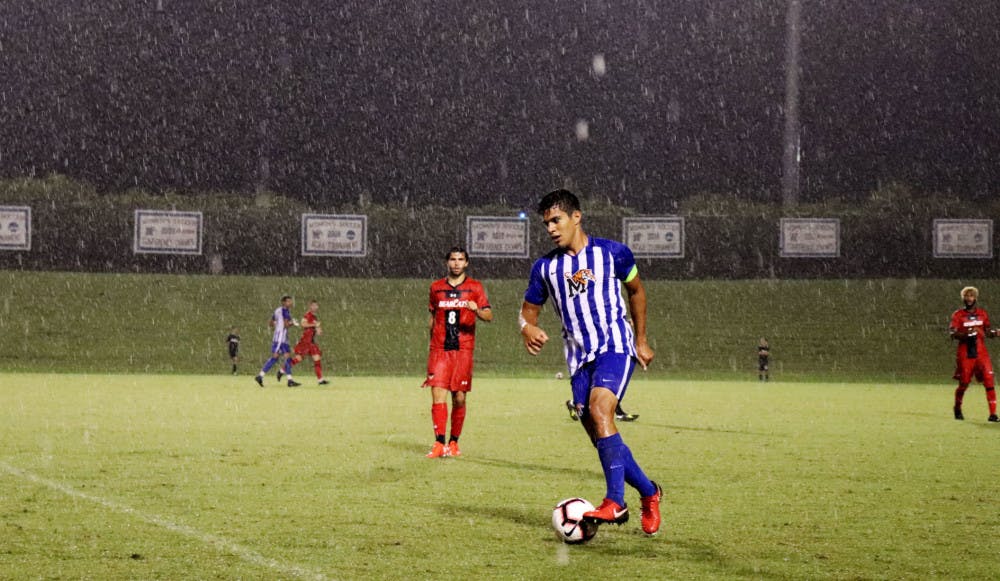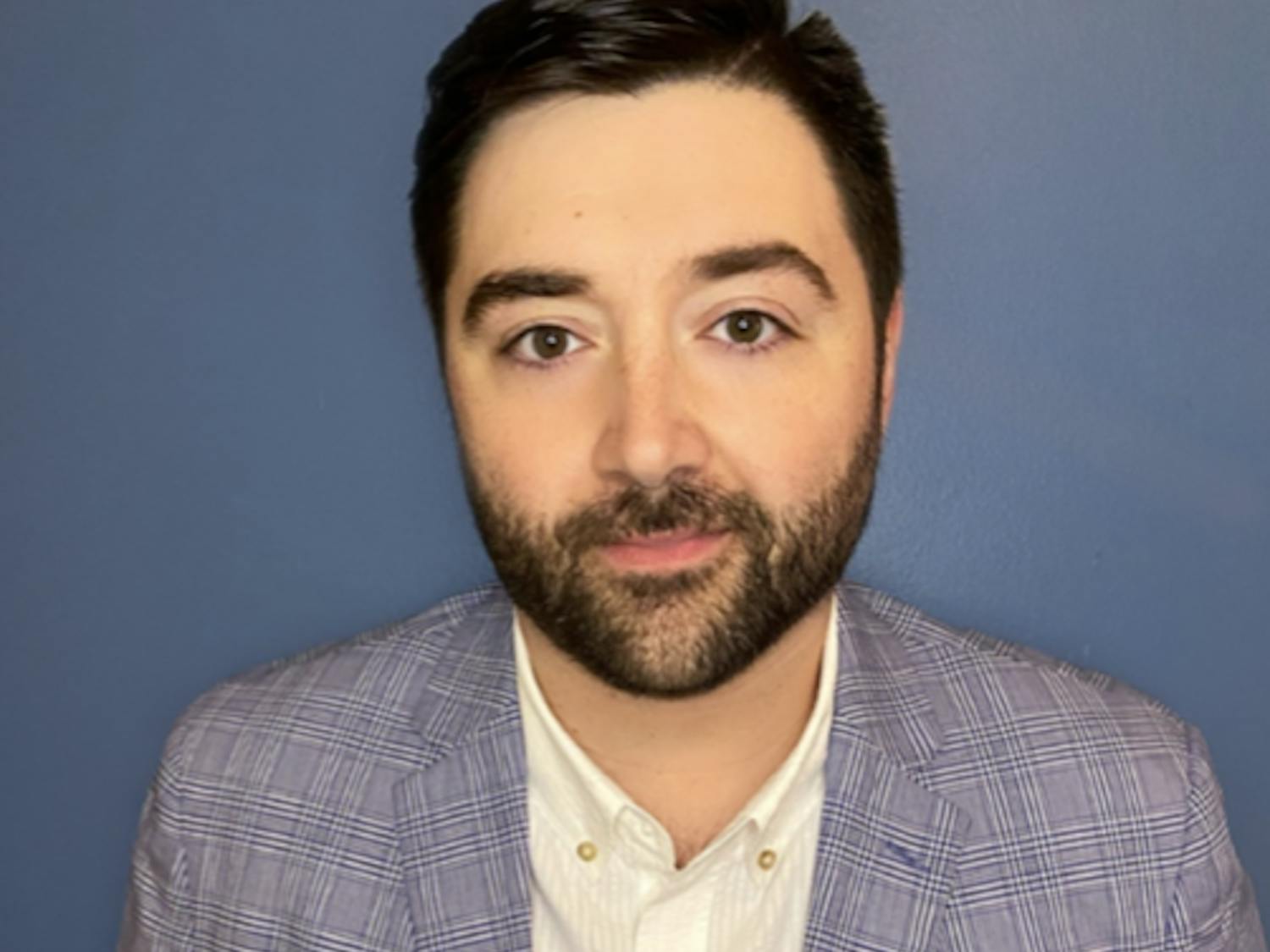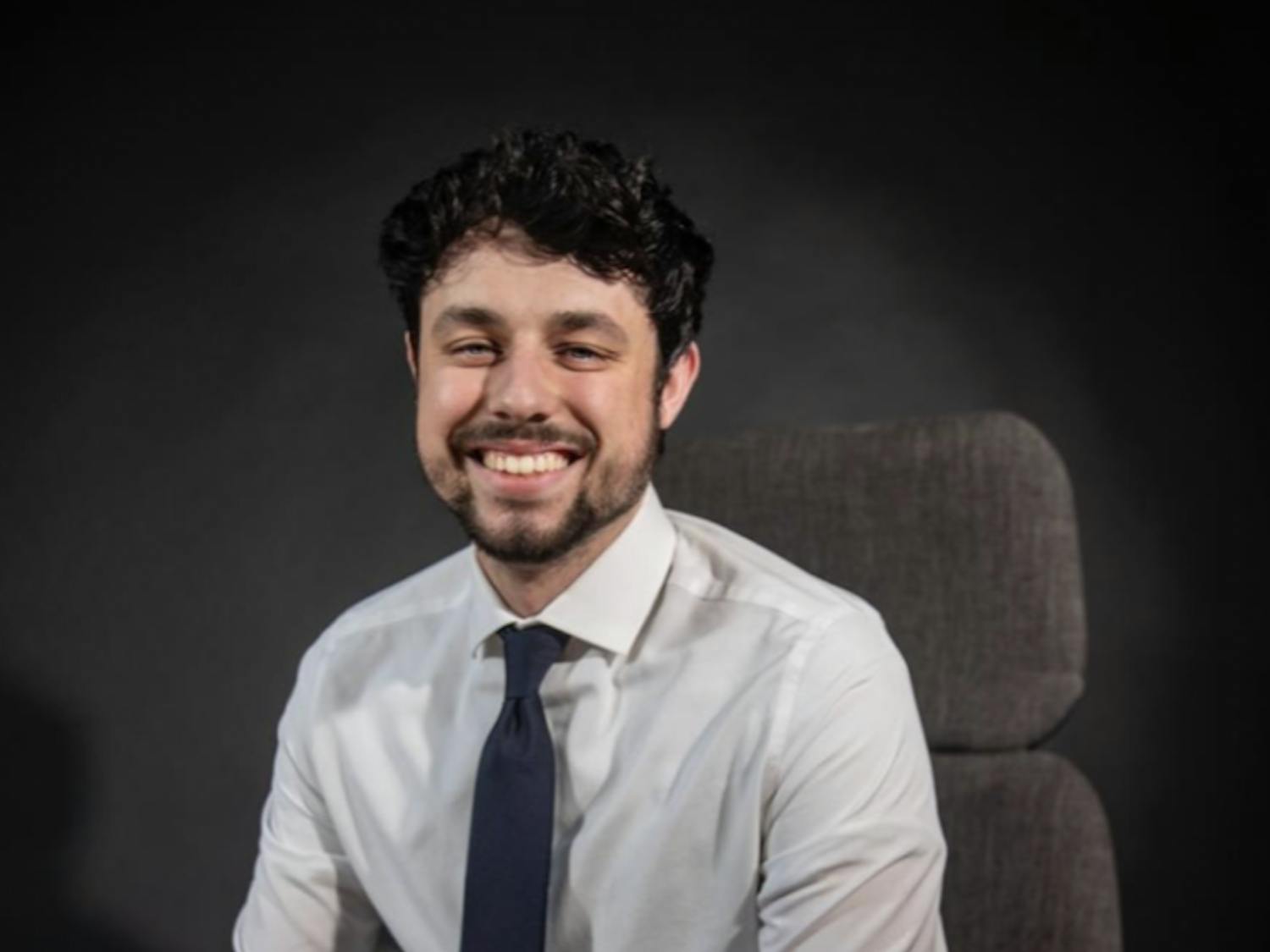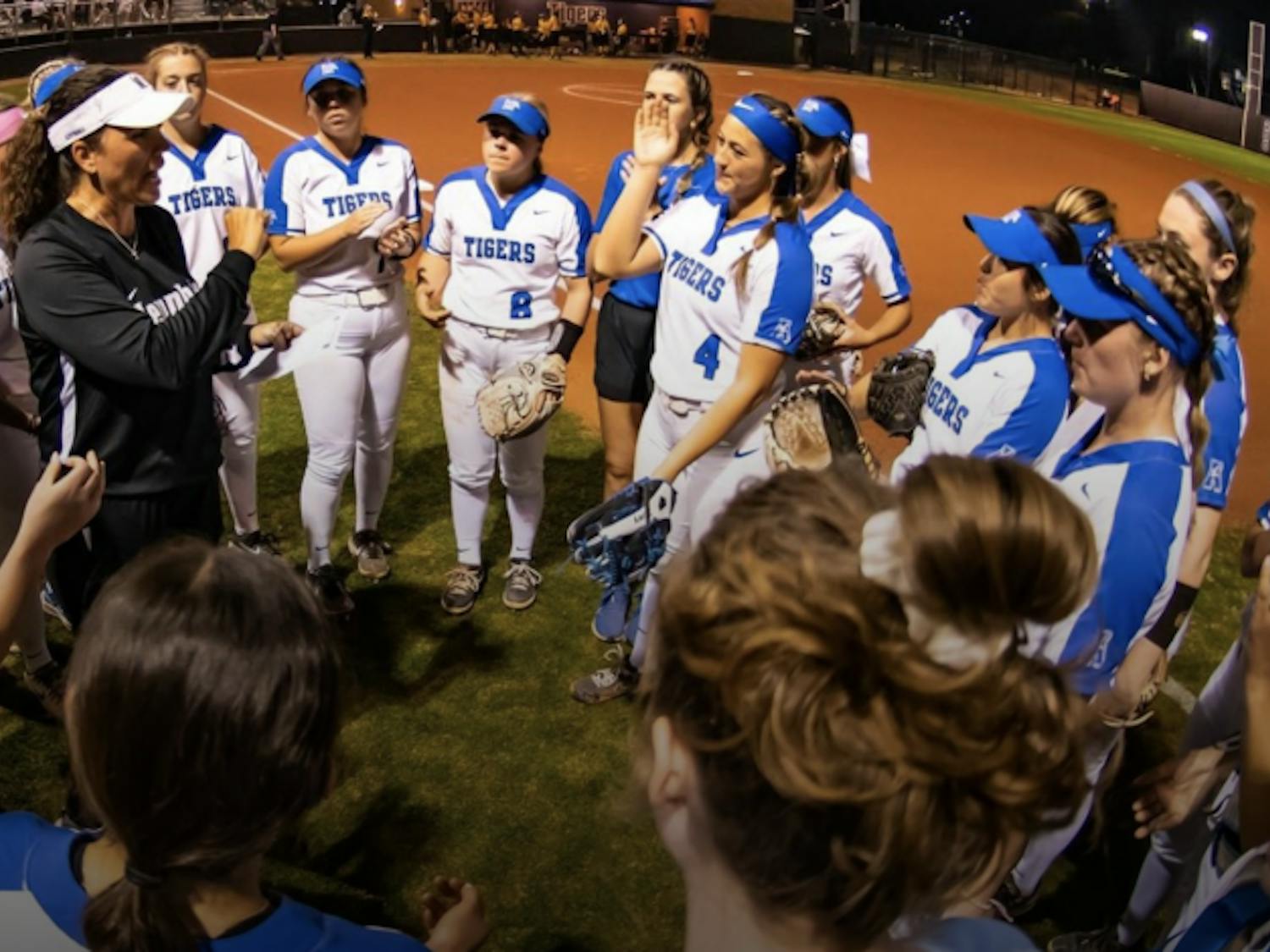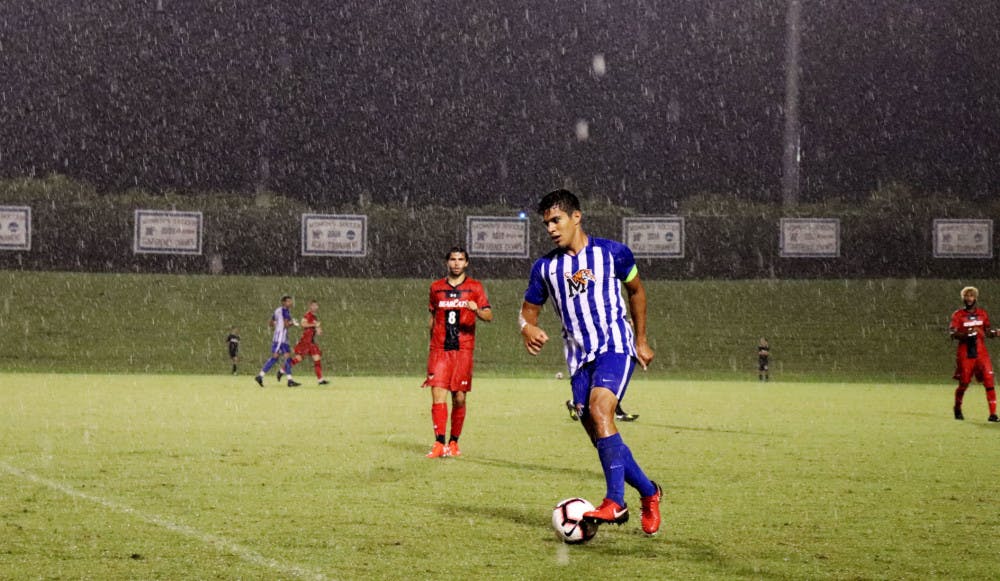
David Zalzman dribbling the ball in the midfield during a rainy night against Cincinnati. Zalzman helped lead the Tigers to the AAC Conference tournament semifinals in his final season.
David Zalzman, a senior midfielder for the University of Memphis men’s soccer team, helped the team reach the American Athletic Conference semifinals and finish with an 8-7-4 (2-4-1 AAC) record.
Born and raised in Maracay, Venezuela, Zalzman previously played for Venezuela in the 2013 U17 World Cup. For the Memphis Tigers, Zalzman scored six goals and added seven assists, even after missing his freshman year due to the NCAA declaring him inelligable.
Zalzman was on the 2017 Second-Team All-AAC. Academically, he was placed on the Dean’s List five times, the 2017 AAC All-Academic Team, the United Soccer Coaches Scholar All-South Region First Team and the United Soccer Coaches Scholar All-America Second Team. He is the first Tiger since Mark Sherrod to earn an academic All-American honor.
Frank Ramirez: Can you describe your time here in Memphis, both on and off the field, and how you’ve adapted to the American culture?
David Zalzman: I had a great four years in Memphis. Fortunately, everyone around me made me feel welcome; not only teammates or coaches but also professors and advisories definitely helped a lot when I first arrived in Memphis because I knew I had their support. On the field, it felt like a roller coaster. We had good years and others not so good, but it helped the team a lot to grow as players and gain experiences from those good and bad moments.
Obviously, the culture in the US is completely different from back home, but as I mentioned before the people that were close to me helped me to adapt quickly and with no problems.
FR: How were you introduced to soccer as a child, and when did it become important to you?
DZ: I think I started playing soccer when I was six or seven, and ever since then it’s been a main part of my life. My father and my uncles all played soccer and are soccer fans, so it was something that the family enjoyed a lot. It got to the point where soccer was everywhere in my life, and it still is.
FR: Describe attending La Masia (FC Barcelona youth academy).
DZ: Playing for Barcelona was an amazing experience. I had my good and tough moments, but it helped me shape and understand the game the way I do today. Competing at such a high level not only in performances but also expectations and pressure made it tough as a kid, but now I appreciate all those experiences because it makes me feel calm now when I have to step on the field and play my game.
FR: How remarkable was it playing for Venezuela in your teens?
DZ: I consider playing for the national team my biggest achievement so far. I always dreamed of it and, fortunately, I had the opportunity to be part of an amazing team that qualified for the very first time in Venezuela’s history to a World Cup. It’s going to be very hard to top that feeling.
FR: What led you to come play for the UofM?
DZ: I reached out to Juan Guerra who is a friend of Hector Cantele, who was already playing at the UofM, to see if there’s was an opportunity for me to come to Memphis to play soccer. Since I played with Hector back in Venezuela, I figured it would have been an easier adaption and, fortunately, it was.
FR: What is your best and worst memory playing with the Tigers?
DZ: This last year was definitely the best. I think I’d choose our win in quarterfinals as my favorite memory because everyone saw what we were capable of and we enjoyed playing that game and obviously the reward of getting to semi-finals was a great feeling. My worst memory is that last game of my sophomore year against Tulsa. We needed a win to make the tournament. We were losing 2-0. And, with less than a minute left, I looked around the field and saw Jordan Klipsch, a senior, crying while one of the Tulsa guys ran next to him with the ball going straight to the goal, and that was the toughest moment in my four years in Memphis.
FR: What advice can you give to younger players looking to play collegiately or professionally?
DZ: It’s important to push yourself to your limits if you really want to know how good you are and to play at any level. I think those are the players that end up making a difference on and off the field. Being average and doing just enough to pass in any aspect of life at some point will backfire. At least, I see it like that.

